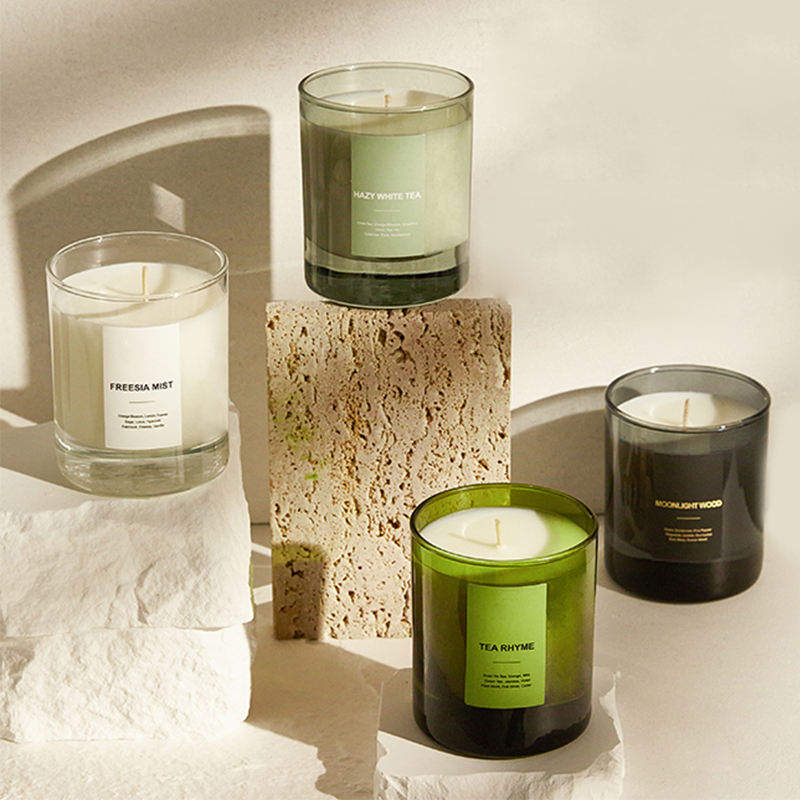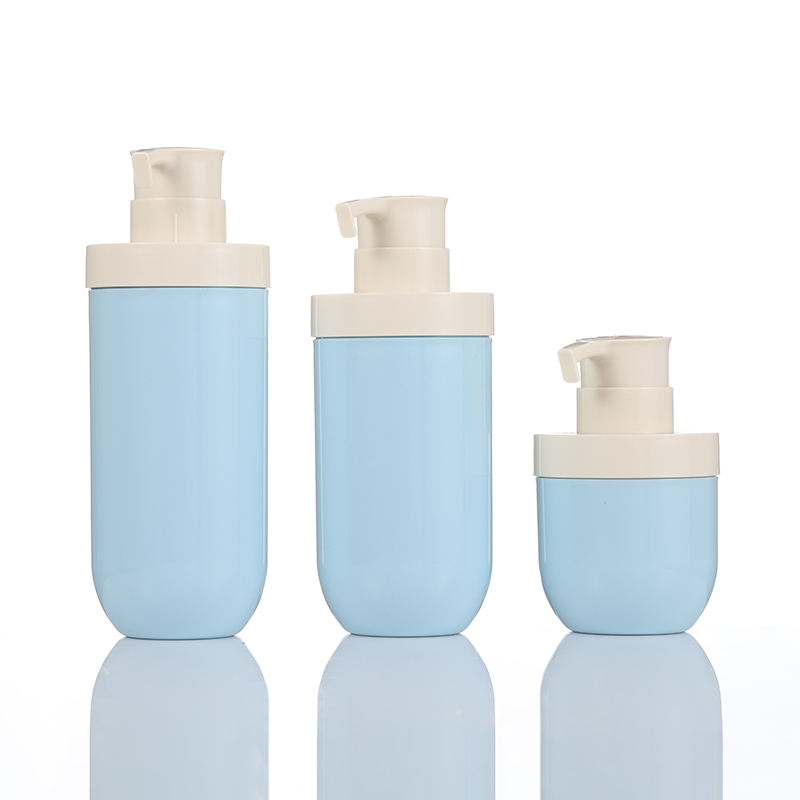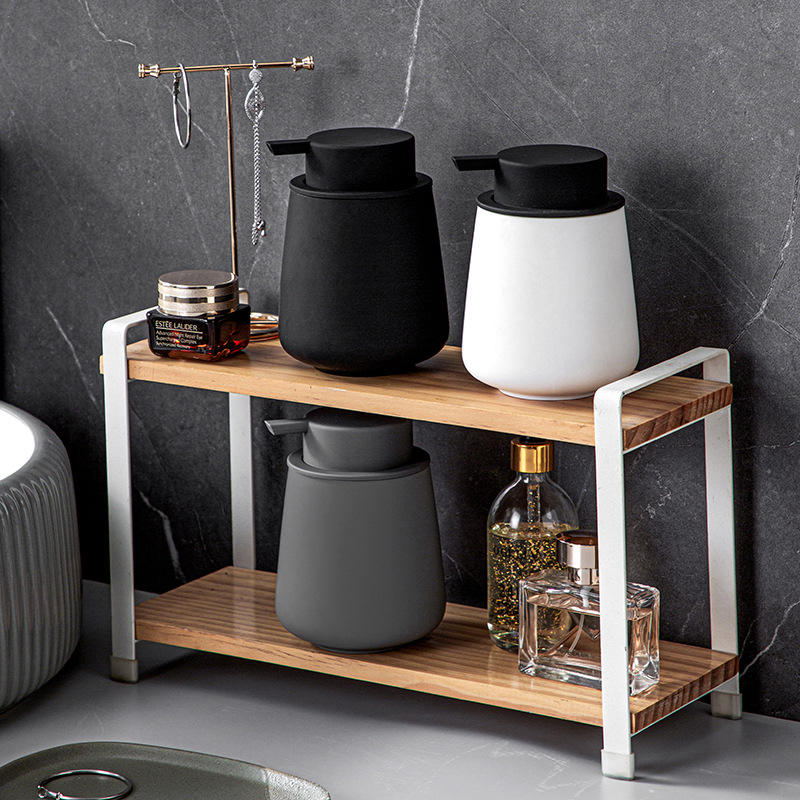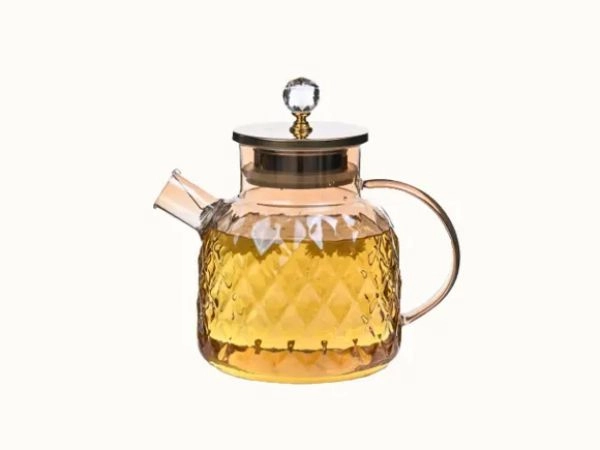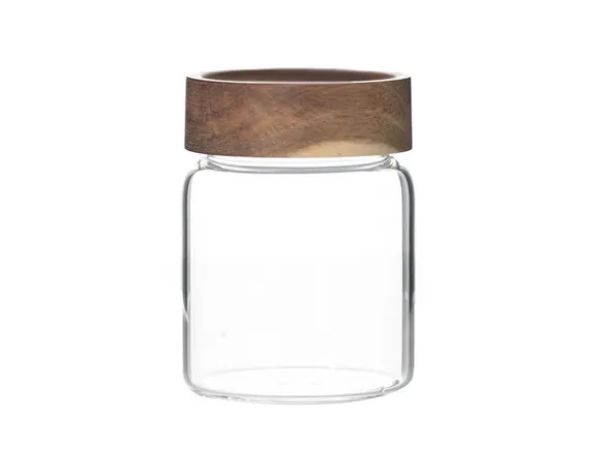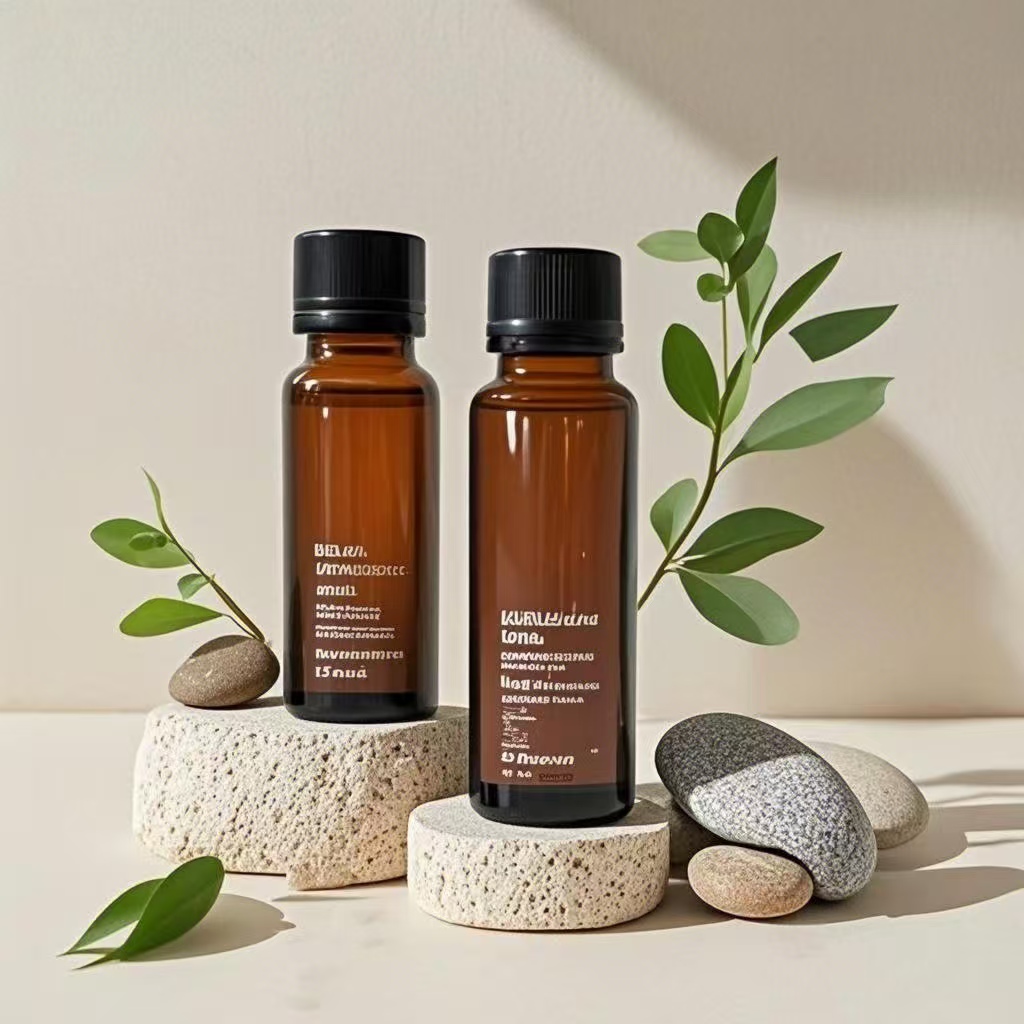By 2024, 78% of US consumers will avoid brands that lack clear sustainable packaging initiatives (IBM Sustainability Survey). The US eco-packaging market is projected to grow 12% annually through 2028. For brands, this isn't just a trend; it's a make-or-break factor in customer loyalty and online visibility. Google's latest algorithm prioritizes brands with verifiable, customer-centric sustainability practices, making it crucial to partner with suppliers who back up their green claims with concrete actions.
This article highlights three high-impact sustainable bottle partners tailored for US brands: a branded wood composite eco-bottle supplier , a large-scale sugarcane eco-bottle trading company , and a PCR sustainable bottle wholesaler (for brands) . We'll explore how each company addresses the unique challenges of the US market, key selection criteria, and how they can contribute to SEO success—so you can achieve your sustainability goals while ranking on the first page of Google.
1. Wood composite eco-friendly bottle supplier: providing innovative and environmentally friendly options for visionary American brands
For brands looking to differentiate themselves in the competitive sustainable packaging landscape, wood-composite eco-bottles are a game-changer. Made from recycled wood fibers (e.g., sawdust, wood chips) and plant-based adhesives, these bottles are biodegradable, carbon-negative, and offer a unique aesthetic, making them ideal for brands in the beauty, wellness, or premium food sectors. Wood-composite eco-bottle suppliers not only sell the packaging but also help American brands turn sustainability into a competitive advantage.
What makes these suppliers so crucial to American brands?
American brands face two major challenges in sustainable packaging: differentiation and regulatory compliance. Wood composite suppliers are working to address both issues:
Unique brand image : Unlike regular plastic bottles or even standard sugarcane bottles, wood composite bottles have a naturally textured surface that aligns with a "pure" or "handmade" brand aesthetic. For example, a US herbal tea brand might use a wood composite bottle to reinforce its "farm to cup" branding.
US Regulatory Compliance : Top suppliers ensure bottles meet FDA food contact safety standards, FTC "green marketing" guidelines (to avoid "greenwashing"), and state regulations (such as New York's ban on non-recyclable packaging). They also offer third-party certifications like ASTM D6400 (biodegradability) for your website.
Sustainability storytelling tools : Many suppliers offer custom labels and QR codes that link to a bottle’s lifecycle data (e.g., “This bottle prevents 0.5 pounds of wood waste from entering a landfill”). This type of content resonates with both US consumers and Google, which values transparent, user-centric sustainability claims.
The Benefits of SEO for American Brands
Wood composite packaging is a low-competition, high-intent keyword category—US users searched 1.9 times more for "beauty brand wood composite eco-friendly bottles" than for the general term "biodegradable bottles" (Semrush). Working with a professional supplier allows you to:
Create visual content : Post photos/videos of wood composite bottles in use (e.g., unboxing videos for skincare brands) to rank for image-based searches, driving 20% of US organic traffic (Google).
Leverage supplier case studies : Share how a supplier helped you launch your wood composite product line – for example, “How our wood composite bottles increased sales by 22%” – to target keywords like “US wood composite bottle success story”
The primary selection criteria for American brands
Customization capabilities : Look for a supplier who can offer bottle sizes (1 oz to 32 oz) and finishes (matte, glossy) that fit your brand.
US Shipping Network : Choose suppliers with warehouses in the US to reduce lead times (critical for seasonal releases) and carbon emissions from international shipping.
Certification access : Make sure they provide easily shareable documentation (FDA, ASTM) for your “sustainability” page – this builds trust and improves search rankings.
2. Large-scale trading company of sugarcane eco-bottles: scalable and consistent brand solutions to support growth in the US market
Sugarcane eco-friendly bottles remain a staple in sustainable packaging—they're made from 100% renewable sugarcane, are compostable, and compatible with most U.S. recycling systems. However, for brands expanding national distribution (for example, to enter Walmart or Target), standard suppliers struggle to meet demand. Large-scale trading companies specializing in sugarcane eco-friendly bottles specialize in high-volume orders, meet U.S. retailer compliance requirements, and maintain brand integration, making them an ideal choice for mid- to large-sized U.S. brands.
How are these trading companies different?
Unlike smaller suppliers, large sugarcane trading companies are focused on solving the growth challenges of US brands:
Scalability for US retailers : They maintain an inventory of over 500,000 bottles and can fulfill bulk orders (100,000+ units) within 7-10 days – critical to meeting retailers’ deadlines (e.g., Target’s 30-day replenishment requirement).
Retailer-specific design support : We understand the packaging regulations of major US retailers (e.g., Walmart’s requirements for clear sustainability labeling) and can help you adapt your bottles to comply with those regulations. For example, a snack brand might require a sugarcane bottle with a tamper-evident cap to meet Walmart’s safety standards.
Cost efficiencies of high-volume production : By leveraging their global supply chains, trading companies offer unit costs that are 15-20% lower than smaller suppliers – crucial for brands seeking to balance sustainability and profitability.
Why American Brands Choose These Trading Companies (and How It Boosts SEO)
For a US beverage brand expanding into more than 50 states, partnering with a large sugarcane trading company allowed them to avoid common pitfalls:
Out-of-stock situations : Trading companies’ large inventories prevent stock-outs, which can harm customer trust and search rankings (Google penalizes sites with high bounce rates for out-of-stock pages).
Compliance Risk : They handle all US import logistics (customs, duties) and ensure bottles meet FDA standards - so you avoid costly recalls or fines that damage your brand's reputation.
From an SEO perspective, sugarcane packaging is a high-volume keyword category. US users search for "eco-friendly beverage brand sugarcane bottles" 3.2 times per month (Ahrefs). Trading companies can help you capitalize on this by:
Provide sustainability metrics : Share data like “Our sugarcane bottles reduce carbon emissions by 45% compared to plastic” (from your trading company) to rank for keywords like “the impact of sugarcane bottles on the US environment”
Provide co-branded content : Many trading companies publish guest posts on your blog (e.g., "5 Trends in Sugarcane Packaging in the US") to increase backlinks and domain authority – which is crucial for Google rankings.
Real-world example: The success of American snack brands
A Colorado-based organic snack brand partnered with a major sugarcane eco-friendly bottle trading company to switch its nut butter line from plastic packaging to sugarcane packaging. The trading company provided BPI-certified compostable labels that met Walmart standards, reducing per-unit costs by 15%. The brand's blog post about the switch ranked fourth on Google searches for "US snacks sugarcane eco-friendly bottles" within six weeks, driving a 31% increase in organic traffic and an 18% increase in Walmart sales.
3. PCR Sustainable Bottle Wholesaler: A dedicated recycling partner helping American brands achieve their circularity goals
Post-consumer recycled (PCR) sustainable bottles are the cornerstone of circular packaging—made from recycled plastic (such as old water bottles), they reduce plastic waste and reduce reliance on virgin materials. PCR sustainable bottle wholesalers (brands) specialize in supplying high-quality PCR bottles to US brands, prioritizing transparency, compliance, and brand storytelling. These wholesalers are crucial for brands prioritizing the "reduce, reuse, recycle" initiative.
How important are these wholesalers to American brands?
Demand for PCR packaging is growing among U.S. consumers and retailers—82% of U.S. shoppers say they would choose PCR-packaged products over virgin plastic packaging (First Insight). Top PCR wholesalers meet three key brand needs:
PCR content transparency : They use blockchain or third-party audits to verify PCR percentages (e.g., “70% PCR plastic”) and provide How2Recycle labeling—critical to avoiding FTC greenwashing fines and building consumer trust.
Design for Recyclability : They advise on bottle shapes and materials that are compatible with the U.S. recycling system (e.g., avoiding mixed plastics that would contaminate the recycling stream). For example, a cleaning product brand might want a PCR bottle with a monomaterial cap for easier recycling.
Circular Economy Stories : They can help you communicate the impact of PCR to your customers – for example, “Each of our PCR bottles diverts 2.5 plastic bottles from US landfills.” This narrative resonates with environmentally conscious shoppers and with Google, which prioritizes brands that contribute to the circular economy.
The Benefits of SEO for American Brands
PCR packaging is a high-intent, low-competition keyword category for US brands. Users search for "household brand PCR sustainable bottles" 2.4 times per month (Ubersuggest). Wholesalers can help you rank well by:
Enable data-driven content : Publish a quarterly report on PCR usage (e.g., “Q3: We reused 50,000 plastic bottles”) to target keywords like “PCR bottle impact report US”
Supports local SEO : Many wholesalers have facilities in the United States, so you can highlight “locally sourced PCR bottles” to rank for location-specific searches (e.g., “branded PCR bottle wholesaler, west coast, USA”).
The primary selection criteria for American brands
PCR quality control : Choose a wholesaler that tests bottles for durability (e.g., leak-proofness) and consistency—poor-quality PCR bottles can damage your brand’s reputation.
US compliance expertise : Make sure they understand state-level PCR regulations (for example, California requires 30% PCR content in plastic packaging by 2026) and help you meet them.
Storytelling resources : Look for wholesalers that offer customizable infographics or social media content about the impact of PCR—this can save time and enhance your content strategy.
How to Choose the Right Sustainable Bottling Partner (and Rank on Google)
The best partner depends on your brand’s size, goals, and target market. Use the following framework to decide:
| Brand Type | Best Partner | SEO Focus |
|---|---|---|
| Small and medium-sized brands (independent beauty, artisanal food) | Wood composite eco bottle supplier | Highlight unique design and sustainable storytelling; use visual content for image search. |
| Medium and large brands (national beverages, retailer partners) | Sugarcane Eco-Bottle Large Trading Company | Leverage scalability and retailer compliance; publish co-branded content to earn backlinks. |
| Brands that prioritize circularity (home goods, personal care) | PCR Sustainable Bottle Wholesaler | Focus on PCR impact data and US local sourcing; create quarterly impact reports. |
Pro SEO Tip: Integrate Partner Credentials into Your Website
Whichever partner you choose, you can incorporate their expertise into your website:
Added a “Our Sustainability Partners” page with links to certifications (FDA, BPI) and case studies.
Include a partner quote in your product description (e.g., “Made with 70% PCR plastic from our trusted wholesaler”).
Share partner-backed sustainability tips (like “How to Recycle Our Sugarcane Bottles”) on social media to drive traffic to your blog.
Conclusion: Your partners = your path to the first page of Google
In the US sustainable packaging market, your supplier is more than just a supplier; it's a key driver of your SEO success and brand reputation. Whether you choose a wood composite eco-friendly bottle supplier , a large-scale sugarcane eco-friendly bottle trading company , or a PCR sustainable bottle wholesaler , the right partner can provide you with the compliance, storytelling tools, and data to help you rank high on Google and win the hearts and minds of US consumers.
Remember: Google rewards authenticity and user value. By partnering with suppliers who align with your brand values and support your green claims, you'll not only improve your search rankings but also build long-term customer loyalty in a market where sustainability is no longer optional.
Ready to start? Find a partner with experience in the US market, seek references from brands in your industry, and incorporate their expertise into your website content. Your Google rankings (and ultimately your bottom line) will thank you.



